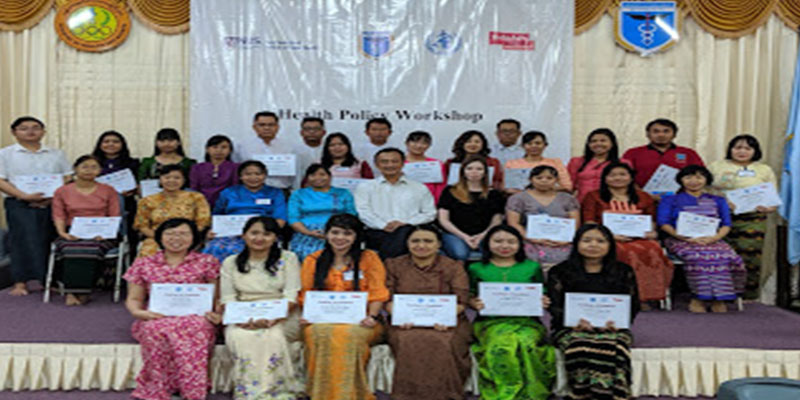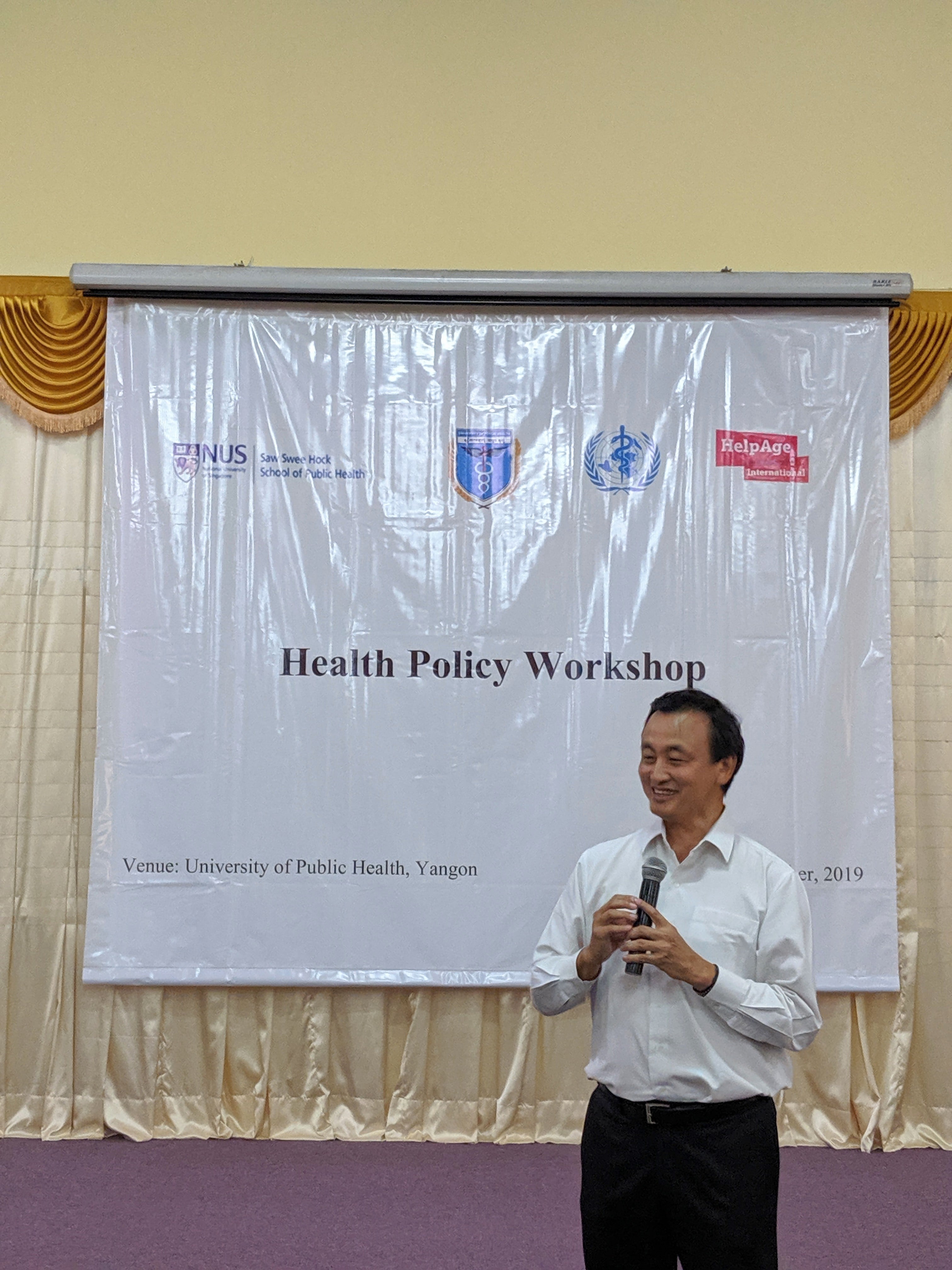
UPH-NUS Joint Workshop on Health Policy
What is health policy? How is health policy analysis conducted? How do policy processes take place? What constitutes evidence-based policymaking and how can it be done well? How do you write a policy paper?
These questions formed the foundations of the ‘UPH-NUS Joint Workshop on Health Policy’, jointly organised by the Saw Swee Hock School of Public Health (SSHSPH), National University of Singapore (NUS) and the University of Public Health (UPH), Yangon, Myanmar. Supported by Helpage International and the World Health Organization, this workshop took place from 11 to 13 September and was attended by over 20 UPH faculty members from across epidemiology, biostatistics, nutrition, and other public health disciplines.
The workshop was officiated by SSHSPH Dean, Professor Teo Yik Ying, who delivered a keynote address on the importance of translating evidence to policy on the first day. The workshop was conducted by SSHSPH founding Dean, Prof Chia Kee Seng and SSHSPH postdoctoral fellow, Dr Yvette van der Eijk. The 2.5-day workshop’s programme comprised a series of lectures, case studies on health systems reform and tobacco control, group discussions, and presentations grounded in comparing and contrasting Singapore and Myanmar’s health policy contexts and experiences.
Participants were proactive and vocal, raising important questions around the need for robust evidence upon which to base health policymaking, the role of good research.
“It has been a great experience learning about policy processes, policy analysis, writing a policy paper and executive summary,” said workshop participant Dr Ei Mon Phyo, UPH Assistant Lecturer. “These knowledge and skills are essential in implementation of policy processes. I learnt a lot from group work, discussing together with the other participants under the guidance of experienced professionals.”
“From the workshop, I realise I need to think of all the other perspectives (legal, economic, financial, social, political) in solving issues,” added Dr Nilar Aye Tun, also an Assistant Lecturer at UPH. “I have also learned that we should not leave unintended consequences behind. To implement a healthy public policy, it is like playing chess. Those who would propose a policy should consider all the possible good and bad things after the implementation of a policy and should prepare and know how to prevent the things from getting worse.”
The Rector of the University of Public Health, Prof Hla Hla Win, wrapped up the workshop by expressing her hopes that the participants had a fruitful learning experience and that the collaborative partnership between UPH and NUS SSHSPH would continue to grow from strength to strength.




